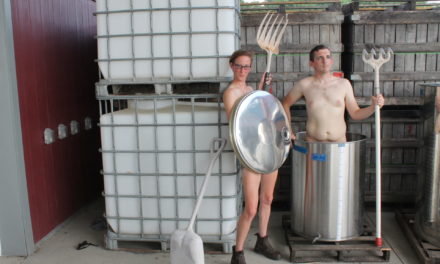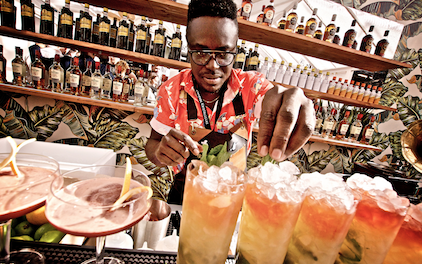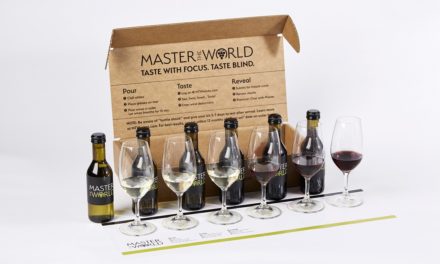On March 18, Governor Abbott issued a temporary waiver that allows restaurants who do not hold a Food & Beverage Certificate the ability to deliver alcohol with food, and also allows restaurants to sell alcohol to-go along with food. There has been a lot of confusion lately on what is and isn’t allowed during the temporary waiver period.
Soon after, the TABC issued an advisory that clarifies the temporary delivery and pick up rules (link found here), and even has a dedicated webpage with guidance and information on the temporary measures being taken in the wake of the coronavirus outbreak. The webpage includes a helpful chart that outlines who can deliver or sell alcohol to go, and also a best practices guide on to-go alcohol sales.
MBs with FBs can permanently delivery alcohol with food
However, because the Texas Alcoholic Beverage Code was amended in August 2019 by the 86th legislature – even after the temporary waiver is no longer in effect – restaurants that operate under a Mixed Beverage Permit (MB) and also a subordinate Food & Beverage Certificate (FB) will still be allowed to deliver alcohol along with a meal (but will not be allowed to continue selling alcohol to-go). A TABC advisory on the normal alcohol delivery rules that will apply after the temporary waiver is no longer effective can be found here. In order to qualify for an FB, an MB permit holder basically has to have a permanent kitchen and at least 40% non-alcohol revenue.
MBs can only deliver & sell alcohol to-go that is still in a manufacturer-sealed container
MB restaurants are still not allowed to sell pre-mixed cocktails, even if the container is sealed by the retailer; the alcohol delivered or sold to-go must be in the manufacturer-sealed container that is 375 milliliters or less – Unlike BG’s, which are permanently allowed to sell beer and wine to-go in any sort of sealed container (think of your local drive-through daiquiri store). MBs are allowed to sell non-alcoholic drink mixes and include a manufacturer-sealed bottle with a mix for a delivery or to-go order.
On March 18, Governor Abbott issued a temporary waiver that allows restaurants who do not hold a Food & Beverage Certificate the ability to deliver alcohol with food, and also allows restaurants to sell alcohol to-go along with food. There has been a lot of confusion lately on what is and isn’t allowed during the temporary waiver period.
Soon after, the TABC issued an advisory that clarifies the temporary delivery and pick up rules (link found here), and even has a dedicated webpage with guidance and information on the temporary measures being taken in the wake of the coronavirus outbreak. The webpage includes a helpful chart that outlines who can deliver or sell alcohol to go, and also a best practices guide on to-go alcohol sales.
MBs with FBs can permanently delivery alcohol with food
However, because the Texas Alcoholic Beverage Code was amended in August 2019 by the 86th legislature – even after the temporary waiver is no longer in effect – restaurants that operate under a Mixed Beverage Permit (MB) and also a subordinate Food & Beverage Certificate (FB) will still be allowed to deliver alcohol along with a meal (but will not be allowed to continue selling alcohol to-go). A TABC advisory on the normal alcohol delivery rules that will apply after the temporary waiver is no longer effective can be found here. In order to qualify for an FB, an MB permit holder basically has to have a permanent kitchen and at least 40% non-alcohol revenue.
MBs can only deliver & sell alcohol to-go that is still in a manufacturer-sealed container
MB restaurants are still not allowed to sell pre-mixed cocktails, even if the container is sealed by the retailer; the alcohol delivered or sold to-go must be in the manufacturer-sealed container that is 375 milliliters or less – Unlike BG’s, which are permanently allowed to sell beer and wine to-go in any sort of sealed container (think of your local drive-through daiquiri store). MBs are allowed to sell non-alcoholic drink mixes and include a manufacturer-sealed bottle with a mix for a delivery or to-go order.
On March 18, Governor Abbott issued a temporary waiver that allows restaurants who do not hold a Food & Beverage Certificate the ability to deliver alcohol with food, and also allows restaurants to sell alcohol to-go along with food. There has been a lot of confusion lately on what is and isn’t allowed during the temporary waiver period.
Soon after, the TABC issued an advisory that clarifies the temporary delivery and pick up rules (link found here), and even has a dedicated webpage with guidance and information on the temporary measures being taken in the wake of the coronavirus outbreak. The webpage includes a helpful chart that outlines who can deliver or sell alcohol to go, and also a best practices guide on to-go alcohol sales.
MBs with FBs can permanently delivery alcohol with food
However, because the Texas Alcoholic Beverage Code was amended in August 2019 by the 86th legislature – even after the temporary waiver is no longer in effect – restaurants that operate under a Mixed Beverage Permit (MB) and also a subordinate Food & Beverage Certificate (FB) will still be allowed to deliver alcohol along with a meal (but will not be allowed to continue selling alcohol to-go). A TABC advisory on the normal alcohol delivery rules that will apply after the temporary waiver is no longer effective can be found here. In order to qualify for an FB, an MB permit holder basically has to have a permanent kitchen and at least 40% non-alcohol revenue.
MBs can only deliver & sell alcohol to-go that is still in a manufacturer-sealed container
MB restaurants are still not allowed to sell pre-mixed cocktails, even if the container is sealed by the retailer; the alcohol delivered or sold to-go must be in the manufacturer-sealed container that is 375 milliliters or less – Unlike BG’s, which are permanently allowed to sell beer and wine to-go in any sort of sealed container (think of your local drive-through daiquiri store). MBs are allowed to sell non-alcoholic drink mixes and include a manufacturer-sealed bottle with a mix for a delivery or to-go order.
Ryan Hughes- Attorney, Griffith & Hughes P.L.L.C
Press releases are generated outside of Spirited magazine and the information contained does not necessarily reflect the opinion of Spirited or its parent company, Sonoma Media Investments.










